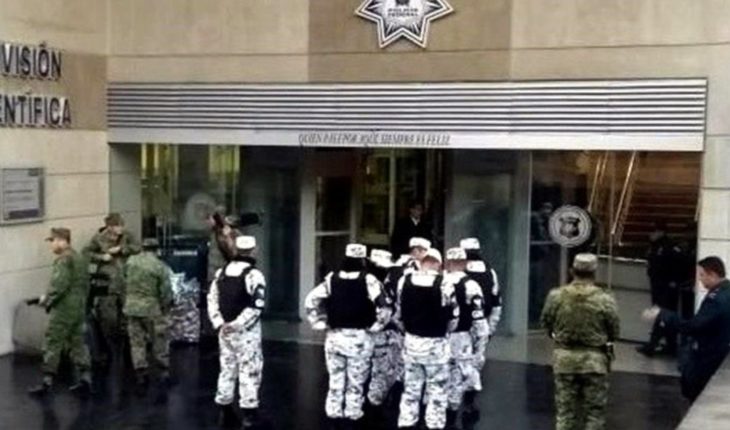equals.-in a statement addressed to the Senate, the office of human rights of the Organization of United Nations (UN), expressed concern by militarization which would involve the creation of the guard National.” We reiterate today our grave concern to a project of constitutional reform that would permanently in a militarized, same public security scheme that we have questioned so repeatedly in the past.” In this regard, we urge the Congress to properly address our concerns and recommendations in its discussions and deliberations with respect to this proposal”, said the document dated Feb. 4.
Photo Agency reform document concerns that the UN had received information related to the constitutional reforms approved by the Chamber of Deputies on the National Guard, through which permanent faculties would be giving to the Armed forces to perform tasks in public safety and criminal investigation.” According to the information received, the draft decree approved by the Chamber of Deputies picked up some of the concerns expressed during the hearings and includes, for example, positive changes with regard to the use of force, the register of arrests and the strengthening of the police forces.
However, prevail very significant elements of concern, particularly with regard to the permanent involvement of military elements in tasks of public security and their involvement in criminal investigation tasks.
For specialists of the United Nations, remain in the opinion the order components military such as: the role of the chiefs of the army and the Navy in the leadership and functioning of the National Guard (“the ‘ Board of Chiefs of staff”). Also, the recruitment, promotion and training of its members under military command; and the tripartite nature of the institution, formed by elements of the Federal Police, military police and Naval police.
The UN is also concerned in the possibility that people could be detained at military installations. The opinion talks about the “making available” of detained civilians elsewhere. However, being the concept of “making available” legally different from the “deprivation of liberty”, the proposed wording could legitimize the making available of a person in civilian facilities, even after having been deprived of freedom in military installations.
In this note:





